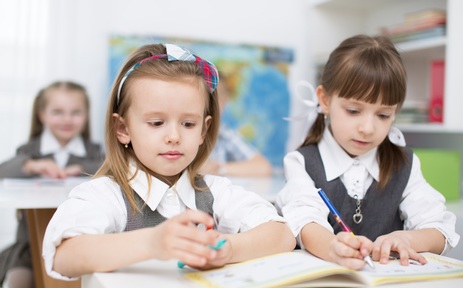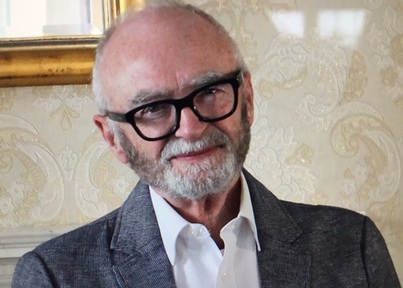Bilingual nurseries can make children more creative, tolerant and better at solving problems
Bilingual nurseries in the UK are helping children to form a foundation to become fluent in multiple languages, with languages such as Welsh, Irish, French and Spanish firmly part of the normal nursery day.

Parents with children attending bilingual nursery often only speak one language themselves, however they are keen to allow their child the advantages speaking numerous languages can bring.
In March 2014, the Pre School Learning Alliance published a report informing early years practitioners on ways to help children become bilingual, focusing on children who do not have English as their first language used at home. Practitioners need to support children learning languages simultaneously to ensure children can communicate their needs both at home and at nursery.
Author of the report, Stephanie Mathivet said: “Early language marks the first steps to connecting with and understanding the world. Most importantly, it is how one and two-year-olds express their emotional states and their needs. If that tool is removed suddenly, for example by being introduced to a different language environment, such as a childminding or nursery setting, then it must feel for the child as if the communication rug has been pulled from under them.
“How we approach building relationships with children who come from homes where English is not the main language of communication is very important.”
Research acknowledged by the National Literacy Trust advises parents and child care providers to take a serious and committed approach to raising children bilingually, which is being demonstrated by bilingual nursery practitioners who have been championing the benefits of multiple language learning.
How it works
 Katy Shakerifar, owner of West Ealing Montessori Nursery (Bilingual-French) explained that initially children link language to the person speaking to them, knowing to communicate to people in different ways as opposed to understanding separate language rules. The early years practitioner described the way a child’s mind is like a chest of drawers, holding unlimited capabilities to learn and go on to differentiate between languages.
Katy Shakerifar, owner of West Ealing Montessori Nursery (Bilingual-French) explained that initially children link language to the person speaking to them, knowing to communicate to people in different ways as opposed to understanding separate language rules. The early years practitioner described the way a child’s mind is like a chest of drawers, holding unlimited capabilities to learn and go on to differentiate between languages.
She said: “A child’s mind is like a chest of drawers and when they look at a person they open the draw for French or English and can speak to them in that language comes out of their mouths.
“Children have the capability to learn four and five languages, only sometimes the problem is that it takes longer to be able to do so because in their minds they need to differentiate between the languages depending on who they speak to.
“We have two mother tongue French teachers who speak to the children in French all the time. Regardless of whether the child understands they will talk French all the time and eventually they will pick up on the words and the same with the English teachers.”
Ms Shakerifar encourages staff to speak to children normally, knowing that children will make connections and learn how to express themselves at their own pace.
She said: “The teachers all speak both French and English, but in front of the kids, the teacher will just speak that one chosen language so the child relates that language to the specific teacher.
“The mind of a child, when they are born, can pronounce any sound and the reason it becomes mother tongue is because the pronunciations of their mother becomes more prominent and they lose their ability to pronounce other sounds. Bilingual children do not lose this ability so can speak two languages.
“Bilingual children pick up first on the rhythm and then the words become differentiable. At the beginning they know what the whole phrase will mean but not understand the individual words.
“Parents are keen on their child learning a language even if they don’t. Language has long running benefits and parents know their child will be very successful more and more.”
 Advantageous future
Advantageous future
Regardless of whether they themselves are bilingual, parents of children attending bilingual nurseries are confident they are giving their child an advantage in life by going to nurseries where communicating in two or more languages is the norm.
Wee Care Day Nurseries Ltd is a group of nurseries teaching a range of English and Irish and English and French to children in Belfast and Dublin nurseries. Claire Noble, manager of Wee Care Day Nurseries in Chichester Park South, Belfast, said parents are keen to ensure their children have an insight into other cultures at a young age and are choosing bilingual nurseries as a key way to do this.
She said: “We have lots of parents who only speak English and are so happy that their child is learning a new language, they feel it is a great starting point for their child who will have some understanding of the language for starting primary school and it gives them a great insight into appreciating other cultures.
“The children absorb and learn the language so quickly at this young age especially when it’s spoken all day.”
Ms Noble uses posters, flashcards, CDs and signs to provide a complete learning environment for children to progress in their bilingualism. “The children can be shy at speaking the second language at first but they absorb the understanding and know what is being said. It takes longer for the confidence in speaking if it's not also used within the home, but this comes in time,” she concluded.
Optimum age for learning
The early years has been celebrated as a key time for learning to take place in children, who have the ability to cope with learning multiple languages, which can be nurtured in a nursery setting encouraging them to express themselves in both languages.
Sophie Day, manager of Les Petites Etoiles Bilingual Montessori - Paddington agreed that children can initially be shy at speaking in a second language but the first years of a child’s life are the best time to learn. Ms Day said: “It depends on how confident and comfortable a child is as to which language they speak. Most children will speak in their first language to each other but some French children will speak English to each other when they are in the English classroom.
“The optimum age for language learning is between one and three, that is the best time for them to absorb it, however when we first opened two years ago there was a child who was already three and after one year she could speak both languages because she was exposed to it every day.”
The success of the nursery has caused Les Trois Oursons to expand and will be introducing a dedicated French and English teacher in each of their classrooms so that children will no longer split their time between French and English learning.
For the parents
Managing director of French and English bilingual nursery , Aissatou B. Clish also has high hopes for the future with aims to open further bilingual nurseries after she discovered and employed Spanish speaking nursery nurses as well as French staff when recruiting for her first nursery.
Having Spanish teachers gives children the opportunity to learn words from a third language, but for Ms Clish, creating a multi-cultural and welcoming nursery for parents was equally as important when making the recruitment decision.
She said: “I feel proud that I can make parents feel welcome because I have lots of people who can speak many languages. The first thing I want parents to feel is welcome in the nursery, and if there’s a member of staff speaking the same language as them or has even lived on the same continent as them they will immediately feel happy at our nursery.
“I think learning another language is extremely important and the earlier you add in another language the more likely it is that the child will go on to be bilingual. Teaching them encourages them and gives them an opportunity to explore language and to learn a language and go on to benefit from that.
“I am a French speaker and I was looking for a childcare place for my child to do French and English but couldn’t find anything and thought that wasn’t right.
“My own children are bilingual and if I ask them something in French they will usually answer me in English, but it is just about getting a good balance right.”
Latest Features News
 31-Oct-19
Reward stickers at nursery accused of having a 'dark side'
31-Oct-19
Reward stickers at nursery accused of having a 'dark side'
 18-Sep-19
Neuroscientist tells nurseries to ditch stereotypes as they create gendered brains
18-Sep-19
Neuroscientist tells nurseries to ditch stereotypes as they create gendered brains
 03-Sep-19
School readiness: Nursery chief says four-year-olds are too young for 'big school'
03-Sep-19
School readiness: Nursery chief says four-year-olds are too young for 'big school'
 24-Jul-19
Nurseries 'fed up' of early years being used as political football, says ex-children's commissioner
24-Jul-19
Nurseries 'fed up' of early years being used as political football, says ex-children's commissioner
 21-Jun-19
Forest school experiment: How my tidy preschooler went feral for the day
21-Jun-19
Forest school experiment: How my tidy preschooler went feral for the day